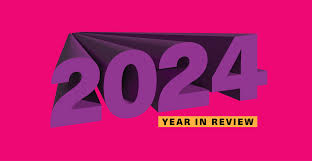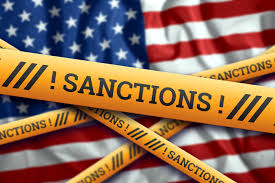The Sanctions Year in Review: DOJ takes First Steps to Enforce “The New FCPA” While OFAC’s Enforcement Actions Decline

Enforcement and compliance prognosticators (like myself) continued to push DOJ’s promise to transform sanctions enforcement into the era of “the new FCPA.” While DOJ’s promise to bring about an aggressive corporate enforcement program, akin to the FCPA, no new corporate cases were brought on the sanctions front. 2023 included the British American Tobacco as a bell whether of things to come. 2024 was interesting in two ways. DOJ ramped up individual prosecutions from 42 individuals in 2023 to 70 individuals in 2024.
OFAC, however, had a slower enforcement year with no blockbuster cases. The largest fine collected was $20 million from SCG Plastics. For 2024, OFAC had a total number of eleven (11) enforcement actions and recovered a total of $48.7 million in civil penalties. This was a significant reduction from its record in 2023 when OFAC brought seventeen (17) cases for a total of over $1.5 billion in civil penalties. In 2023, the largest enforcement action was against Binance for $968 million.
With the new Administration getting ready to take the reins with a promise of aggressive tariffs and trade enforcement, DOJ’s push for criminal prosecutions will increase — DOJ has the resources in place, additional prosecutors in the National Security Division, existing task forces (Klepto and Disruptive Technology Strike Force) and a “substantial investment” in the Bank Integrity Unit in the Criminal Division’s Money Laundering and Asset Recovery Section.

You can count on 2025 to be the year of criminal sanctions enforcement — large criminal settlements, akin to FCPA cases in structure and resolution. Some will equal or exceed the 2023 British American Tobacco resolution over $600 million.
Individual criminal prosecutions will continue to increase — more than 70 in 2024. In fact, I would expect DOJ to break triple digits in individual enforcement, and exceed 100 in number.
Despite OFAC’s relatively slow enforcement year, OFAC broke new ground with two significant prosecutions of individuals. In 2023, OFAC prosecuted only one individual in the Murad case. For years, OFAC has promised to increase individual prosecutions for sanctions violations. As usual, OFAC meant what it said. 2025 could be a year where individual prosecutions increase yet again.
On November 19, 2024, OFAC imposed a $1.1 million penalty against an individual for violations of the Iran sanctions program. In the second case, on December 18, 2024, OFAC imposed a penalty of $45,179 against an individual for violation of the Global Magnitsky Sanctions Regulations targeting serious human rights abuse and corruption.

The crystal ball for 2025 should be interesting. Assuming that the Russia-Ukraine war ends in the next year, the global Russian sanctions regime will slowly lift and trade with Russia may slowly resume. However, offsetting any relaxation of the Russia sanctions is sure to be increasing sanctions against two major players — China and Iran. In particular, the imposition of increased export controls against China could have a profound impact on the global economy. Along with this regulatory development, tariff and sanctions compliance will become important challenges that could require re-allocation of resources and modification of trade controls.
With tariffs, export controls and sanctions, the new buzz words for compliance will become “circumvention,” and “evasion,” meaning violation of government trade laws and regulations. Financial incentives will be tempting and prompt corrupt actors to undertake another set of criminal schemes — we have seen this occur in our history whenever a new regulatory regime is established, there are always those who seek to illegally profit from it.
The Justice Department, along with regulatory agencies, will be unleashed and directed at companies and individuals. The National Security Division at DOJ already has the resources in place and this could quickly become the most significant threat companies face in the enforcement environment.















